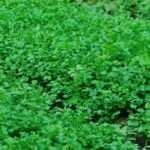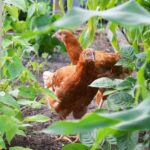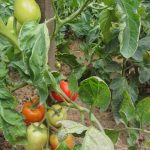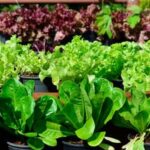Does horse manure make vegetable gardens more productive? Fertilizing your vegetable garden is essential for ensuring healthy, thriving plants and a bountiful harvest. Using organic materials, such as horse manure, can provide numerous benefits to your garden. In this article, we will explore the potential of horse manure as a fertilizer for vegetable gardens and discuss its advantages, proper preparation, potential risks, application methods, timing and frequency, as well as alternative options.
When it comes to fertilizing your vegetable garden, using organic materials like horse manure can significantly improve soil quality and plant growth. The nutrients present in horse manure make it a valuable resource for enriching the soil and promoting the health of your vegetables. However, it is important to understand the proper process for preparing and incorporating horse manure into your garden to ensure optimal results.
Proper preparation is key when it comes to using horse manure in a vegetable garden. Composting the manure can help reduce any potential risks associated with weed seeds or pathogens while also allowing the material to break down and release its nutrients more effectively into the soil. Understanding how to prepare and apply horse manure will ensure that you get the most out of this organic fertilizer for your vegetable garden.
The Benefits of Horse Manure
Nutrients in Horse Manure
Horse manure is a rich source of organic matter and essential nutrients that can benefit vegetable gardens. It contains high levels of nitrogen, phosphorus, and potassium, which are crucial for plant growth and overall soil fertility. Additionally, horse manure also provides other micronutrients such as calcium, magnesium, and sulfur, all of which contribute to the health and productivity of the garden.
Improving Soil Quality
Incorporating horse manure into the soil of a vegetable garden can greatly improve its quality. The organic matter in the manure helps to loosen heavy clay soils and improve drainage, while also enhancing water retention in sandy soils. Furthermore, the nutrients present in horse manure work to increase soil fertility, promoting healthy root development and robust growth in vegetable plants.
Better Plant Health
The use of horse manure as a fertilizer results in improved overall plant health and increased resistance to stressors such as pests and diseases. By providing essential nutrients and fostering microbial activity in the soil, horse manure creates a more hospitable environment for vegetable plants to thrive. As a result, gardeners can expect better yields and higher quality produce from their vegetable gardens when utilizing horse manure as part of their fertilization regimen.
Proper Preparation
Before adding horse manure to your vegetable garden, it is essential to properly compost and prepare it to avoid any potential risks or concerns. Composting horse manure helps break down the organic material, making it more beneficial for the soil and preventing any weed seeds or pathogens from affecting your vegetables.
The process of composting horse manure involves creating a designated compost pile, incorporating other organic materials like straw or wood shavings, and regularly turning and watering the pile to aid in decomposition.
Composting horse manure typically takes several months before it is fully ready for use in a vegetable garden. During this time, the heat generated by the decomposition process will kill off any harmful pathogens or weed seeds present in the manure.
Once the composted horse manure has reached a dark, crumbly consistency and has lost its offensive odor, it is safe to add to your garden soil. When using composted horse manure as a fertilizer, it is important to ensure that it is fully cured before application.
When applying composted horse manure to your vegetable garden, consider mixing it into the soil before planting or using it as a top dressing around existing plants. The added nutrients will enrich the soil, providing essential elements for healthy plant growth while also improving overall soil structure. By following proper preparation methods for composting and preparing horse manure, you can effectively harness its benefits without compromising the health of your vegetable garden.
| Aspect | Description |
|---|---|
| Composting Time | Several months for full decomposition |
| Curing Check | Ensuring that the odor has dissipated before use |
| Application Methods | Mixing into soil or using as top dressing |
Potential Risks
Using horse manure as a fertilizer in a vegetable garden can have numerous benefits, but it is important to address any potential risks or concerns associated with its use. One of the main concerns when using horse manure is the presence of weed seeds.
Horses do not digest all the seeds from the plants they consume, so these seeds can end up in their manure. When this manure is added to a vegetable garden, it can introduce these weed seeds into the soil, leading to an increase in weeds that compete with the vegetables for nutrients and water.
In addition to weed seeds, another potential risk of using horse manure in a vegetable garden is the presence of pathogens. If the manure is not properly composted or aged before being added to the garden, harmful bacteria and parasites could be transferred to the vegetables, posing a health risk to those who consume them.
It is crucial to follow proper preparation and composting procedures when using horse manure as a fertilizer to minimize the risk of pathogens contaminating the garden.
To mitigate these potential risks, it is recommended to thoroughly compost and age horse manure before applying it to a vegetable garden. This process involves allowing the manure to decompose for several months until it reaches temperatures high enough to kill any weed seeds or pathogens present. By properly preparing the horse manure before use, gardeners can reap its nutrient-rich benefits while minimizing potential risks.
Application Methods
Horse manure can be a very beneficial resource for vegetable gardens, providing essential nutrients and improving soil quality. When it comes to incorporating horse manure into a garden, there are several application methods that can be used. One common method is top dressing, where the manure is spread on the surface of the soil. This allows the nutrients to gradually seep into the ground as the manure decomposes.
Another method is side dressing, which involves placing the horse manure in a trench alongside the plants. This can be especially useful for vegetables that have high nutrient requirements, as it provides a direct source of organic matter and nutrients near the roots.
An additional approach for using horse manure in a vegetable garden is by mixing it directly into the soil. This ensures that the nutrients are evenly distributed throughout the soil, benefiting all plants in the garden. However, it’s important to properly prepare and compost the manure before using this method to avoid potential issues such as burning plant roots or introducing weed seeds.
Ultimately, choosing an application method for incorporating horse manure into a vegetable garden will depend on factors such as the type of vegetables grown, soil conditions, and personal preferences. Each method offers its own set of advantages and considerations when it comes to delivering essential nutrients from horse manure to vegetable crops.
| Application Method | Description |
|---|---|
| Top Dressing | Spreading manure on the surface of the soil so nutrients can seep in gradually. |
| Side Dressing | Placing manure in a trench alongside plants to provide direct nutrients near roots. |
| Mixing Into Soil | Incorporating prepared and composted manure directly into soil for even distribution of nutrients. |
Timing and Frequency
When it comes to using horse manure in a vegetable garden, timing and frequency are crucial factors to consider for optimal results. The timing of applying horse manure is important as it can impact the effectiveness of the nutrients present in the manure.
Additionally, using horse manure too frequently or not frequently enough can also have an impact on the health and growth of your vegetable garden. Here are some key points to keep in mind when considering the timing and frequency of applying horse manure:
- Best Times for Application: The best time to apply horse manure to a vegetable garden is during the fall or early spring. This allows for ample time for the composted manure to break down and release its nutrients into the soil before planting season begins. Applying horse manure during these times also ensures that any potential risks, such as weed seeds or pathogens, have sufficient time to break down or be removed from the soil.
- Frequency of Use: It is generally recommended to use horse manure in a vegetable garden every 3-4 years. This allows for a proper rotation of organic materials and prevents an excessive buildup of nutrients that could potentially harm your plants. Overusing horse manure can lead to an imbalance of nutrients in the soil, which in turn can negatively affect the growth and health of your vegetable garden.
Overall, understanding the best times and frequency for applying horse manure to a vegetable garden is essential for reaping its benefits without causing any potential harm. By adhering to these guidelines, you can ensure that your vegetable garden receives the necessary nutrients from organic sources like horse manure while maintaining a healthy balance in the soil.
Alternative Options
For gardeners who may not have access to horse manure, there are several alternative organic fertilizers and soil amendments that can be used to nourish vegetable gardens. These options provide similar benefits to horse manure in terms of enriching the soil and promoting healthy plant growth. Consider the following alternatives:
- Compost: Composting kitchen scraps, yard waste, and other organic matter is a great way to create nutrient-rich soil amendment for vegetable gardens. By decomposing organic materials, compost provides essential nutrients to plants while improving soil structure and water retention.
- Manure from Other Animals: If horse manure is not available, consider using manure from other animals such as cows, chickens, or rabbits. Like horse manure, these animal wastes contain valuable nutrients that can benefit vegetable garden soil.
- Fish Emulsion: Derived from fish processing waste, fish emulsion is a potent organic fertilizer rich in nitrogen and other essential nutrients. It can be applied directly as a liquid fertilizer or mixed with water for easy application.
These alternative options provide effective ways to enrich the soil in vegetable gardens without relying on horse manure. Each offers unique benefits and can be used alone or in combination with one another to create a customized approach to organic gardening.
Remember that proper application methods, timing, and frequency are crucial factors when using any form of fertilizer or soil amendment in a vegetable garden. It’s important to carefully follow the manufacturer’s instructions and consider the specific needs of the plants being grown. Whether it’s composting kitchen scraps or applying fish emulsion, every choice can contribute to a bountiful harvest of healthy fruits and vegetables.
Conclusion
In conclusion, horse manure can be a valuable and beneficial addition to a vegetable garden. Its nutrient-rich composition can help improve soil quality and provide essential elements for the healthy growth of plants. When properly prepared through composting, the potential risks associated with using horse manure, such as weed seeds or pathogens, can be minimized. Additionally, there are various application methods and timing considerations to ensure that horse manure is used effectively in a vegetable garden.
It is important to note that while horse manure can be an excellent organic fertilizer for vegetable gardens, there are alternative options available for those who may not have access to it. Composting kitchen scraps, grass clippings, and other organic materials can also provide valuable nutrients for plants. Additionally, exploring the use of other organic fertilizers and soil amendments can offer different benefits and cater to individual gardening preferences.
Ultimately, the decision to use horse manure in a vegetable garden should be based on personal circumstances and gardening goals. With proper preparation and application, it has the potential to contribute to the overall health and productivity of the garden. As with any gardening practice, conducting thorough research and seeking advice from local experts can help ensure successful results when incorporating horse manure into a vegetable garden.
Frequently Asked Questions
Is Horse Manure OK for Vegetable Garden?
Horse manure can be used in a vegetable garden, but it needs to be aged or composted first to avoid any potential risks of spreading parasites or pathogens to the plants. Fresh horse manure should not be directly added to the garden as it can burn the plants and introduce harmful bacteria.
Composting horse manure for at least six months will break down any harmful substances and make it safe for use in the vegetable garden.
How Long Before You Can Use Fresh Horse Manure?
Fresh horse manure should not be used in a vegetable garden right away due to its high nitrogen content, which can burn the plants as it decomposes. It is recommended to let fresh horse manure age and break down for at least six months before using it in the garden.
This process allows any harmful bacteria or pathogens to die off while also reducing the risk of damaging the plants.
Which Is Better for Vegetable Garden Horse or Cow Manure?
Both horse and cow manure have their benefits for a vegetable garden, but each has its own drawbacks as well. Horse manure tends to have fewer weed seeds compared to cow manure, making it less likely to introduce unwanted weeds into the garden.
On the other hand, cow manure often contains more nutrients and is less likely to “burn” plants if not fully composted. Ultimately, both types of manure can be beneficial if properly composted before use in a vegetable garden.

If you’re looking to get into vegetable gardening, or are just looking for some tips on how to make your current garden better, then you’ve come to the right place! My name is Ethel and I have been gardening for years. In this blog, I’m going to share with you some of my best tips on how to create a successful vegetable garden.





